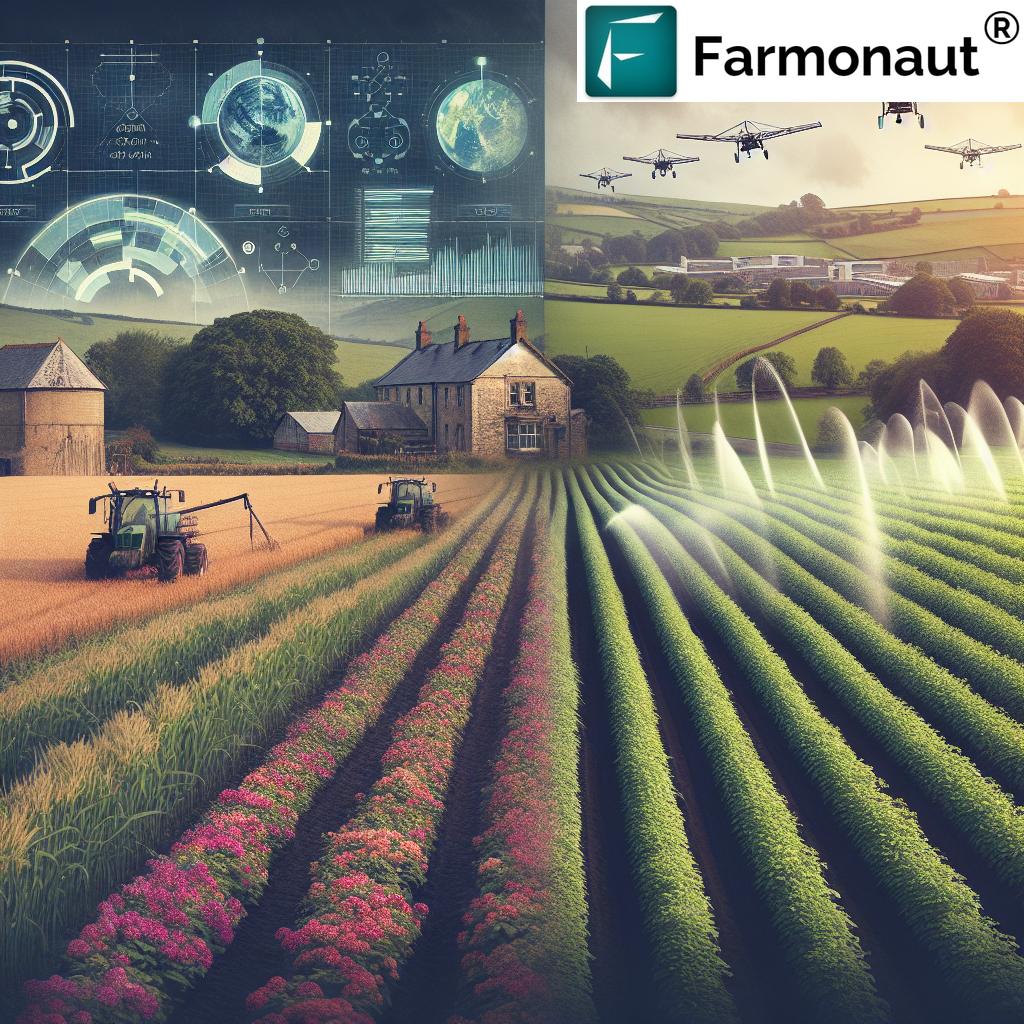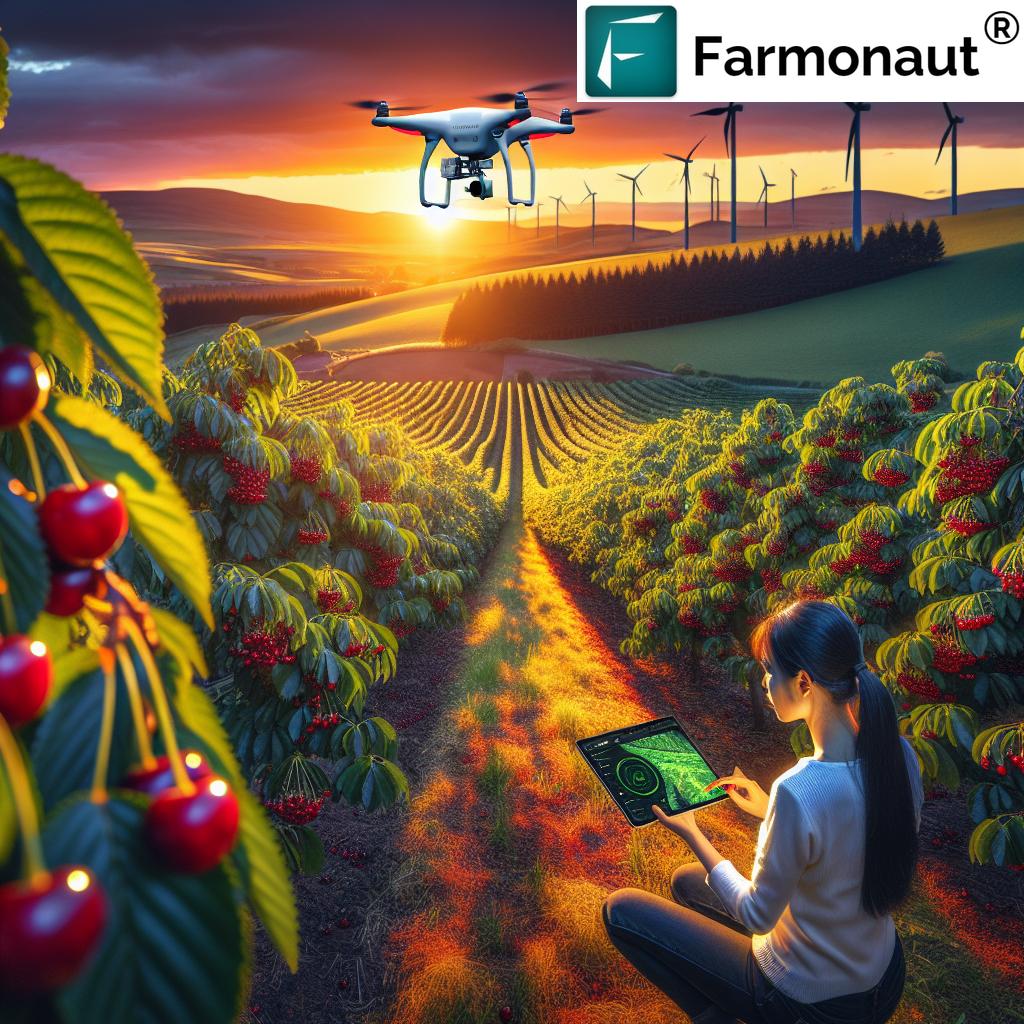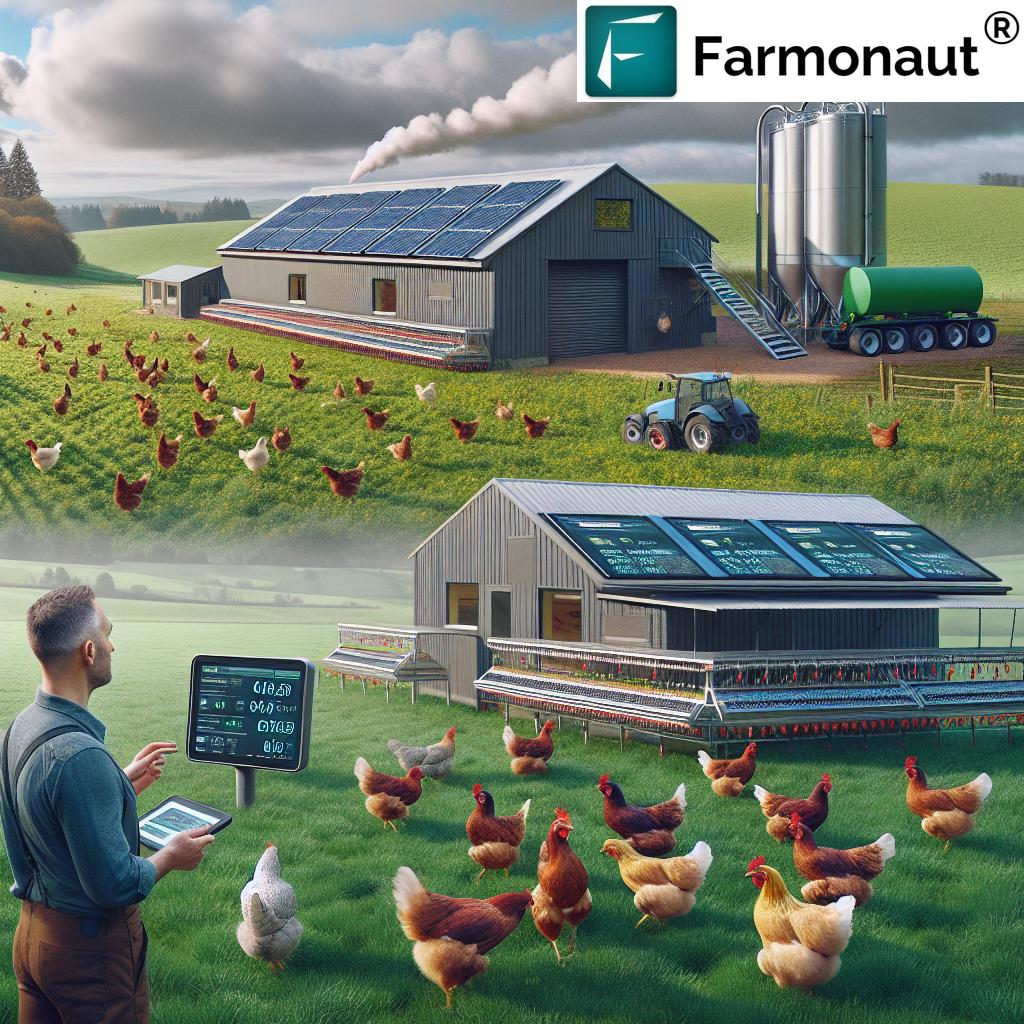UK Horticulture 2023: Navigating Labour Shortages and Rising Costs in Fruit and Vegetable Production
“The UK government announced 45,000 seasonal worker visas for 2023, with a potential increase to 55,000.”
In the ever-evolving landscape of UK horticulture, 2023 has brought forth a myriad of challenges and opportunities for farmers, policymakers, and industry stakeholders. As we delve into the complexities of the fruit and vegetable production sector, we find ourselves at a critical juncture where labour shortages, rising costs, and sustainability concerns intersect. In this comprehensive analysis, we’ll explore the current state of UK horticulture, examine the government’s response to pressing issues, and discuss innovative solutions that could shape the future of farming in the region.
The Labour Conundrum: Addressing Seasonal Worker Shortages
One of the most significant challenges facing UK horticulture in 2023 is the persistent shortage of seasonal workers. The government’s recent announcement of 45,000 seasonal worker visas, with a potential increase to 55,000, marks a crucial step towards addressing this issue. However, the question remains: is this enough to meet the sector’s demands?
The horticulture industry relies heavily on seasonal labour, particularly during peak harvesting periods. The shortfall in workers has led to several concerning outcomes:
- Unharvested crops left to rot in fields
- Increased food waste
- Rising production costs as farmers struggle to find and retain workers
- Potential threats to food security and supply chain stability
While the increase in seasonal worker visas is a positive development, it’s essential to consider the broader implications and long-term solutions to ensure a sustainable workforce for the UK’s horticulture sector.

Rising Production Costs: A Multifaceted Challenge
The horticulture sector is grappling with unprecedented increases in production costs. Several factors contribute to this challenging economic environment:
- Energy Prices: Soaring energy costs have significantly impacted greenhouse operations and cold storage facilities.
- Fertilizer and Pesticide Expenses: The rising prices of essential inputs have squeezed profit margins for many growers.
- Labour Costs: With labour shortages driving up wages, farmers face increased operational expenses.
- Transportation and Logistics: Fuel price hikes and supply chain disruptions have added to the overall cost burden.
These rising costs pose a significant threat to the viability of many horticultural businesses, particularly smaller operations that may lack the financial reserves to weather prolonged economic pressures.
Food Waste: An Ongoing Challenge in UK Agriculture
Food waste remains a critical issue in UK horticulture, with implications for both economic efficiency and environmental sustainability. The causes of food waste in the sector are multifaceted:
- Labour shortages leading to unharvested crops
- Stringent cosmetic standards imposed by retailers
- Inefficiencies in the supply chain
- Overproduction due to unpredictable weather patterns
Addressing food waste is not only an ethical imperative but also a key factor in improving the overall efficiency and profitability of the horticulture sector.
Strained Grower-Retailer Relationships: Seeking Balance in the Supply Chain
The relationship between growers and retailers has come under increasing strain in recent years. Key issues include:
- Pressure on prices paid to producers
- Demanding contractual terms
- Short-notice order changes
- Lack of long-term commitment from some retailers
These challenges highlight the need for more collaborative and equitable partnerships within the supply chain to ensure the long-term sustainability of UK horticulture.
“UK horticulture faces challenges including labour shortages, rising production costs, and food waste across its fruit and vegetable sector.”
Sustainable Farming Practices: A Path Forward
In the face of these challenges, sustainable farming practices offer a beacon of hope for the UK horticulture sector. By adopting environmentally friendly methods, farmers can not only reduce their ecological footprint but also potentially lower production costs and improve crop resilience.
Key sustainable practices gaining traction include:
- Integrated Pest Management (IPM)
- Precision agriculture techniques
- Water conservation methods
- Soil health management
- Biodiversity promotion
These approaches not only benefit the environment but can also lead to more efficient resource use and potentially higher-quality produce.
Innovative Agritech Solutions: Revolutionizing Horticulture
Technology is playing an increasingly crucial role in addressing the challenges faced by UK horticulture. Innovative agritech solutions are emerging as key tools for improving efficiency, reducing costs, and enhancing sustainability.
Some promising technologies include:
- AI-powered crop monitoring systems
- Robotics for harvesting and planting
- Drone technology for precision agriculture
- Blockchain for supply chain transparency
- IoT sensors for real-time data collection
At Farmonaut, we’re at the forefront of this technological revolution, offering cutting-edge solutions to help farmers optimize their operations. Our satellite-based farm management platform provides real-time insights into crop health, weather patterns, and resource utilization, enabling farmers to make data-driven decisions that can significantly improve productivity and reduce costs.
Explore Farmonaut’s innovative solutions:
Policy Recommendations: Shaping the Future of UK Horticulture
To address the complex challenges facing the UK horticulture sector, a comprehensive and forward-thinking policy approach is essential. We propose the following recommendations:
- Labour Access: Develop a more flexible and responsive seasonal worker scheme that can adapt to the sector’s changing needs.
- Water Resource Management: Implement policies to improve water infrastructure and promote efficient irrigation techniques.
- Crop Protection Technologies: Support research and development of environmentally friendly pest control methods.
- Fair Pricing Mechanisms: Encourage the development of pricing models that ensure fair returns for growers while maintaining affordability for consumers.
- Investment in Agritech: Provide incentives and support for farmers adopting innovative technologies to improve productivity and sustainability.
These policy initiatives could play a crucial role in creating a more resilient and sustainable horticulture sector in the UK.
The Role of Technology in Addressing Horticulture Challenges
As we navigate the complexities of UK horticulture in 2023, technology emerges as a critical tool for addressing many of the sector’s pressing challenges. At Farmonaut, we’re committed to providing innovative solutions that can help farmers overcome these obstacles and thrive in an increasingly competitive landscape.
Our satellite-based crop health monitoring system offers real-time insights into vegetation health, soil moisture levels, and other crucial metrics. This data empowers farmers to make informed decisions about irrigation, fertilizer usage, and pest management, ultimately optimizing crop yields and reducing resource wastage.
Learn more about our API solutions: Farmonaut API
Additionally, our Jeevn AI Advisory System delivers personalized farm advice, weather forecasts, and expert crop management strategies directly to farmers’ fingertips. By leveraging artificial intelligence and machine learning, we’re helping farmers improve productivity and efficiency across their operations.
Explore our API developer documentation: API Developer Docs
Sustainable Farming and Resource Management
Sustainability is at the heart of modern horticulture, and technology plays a crucial role in promoting environmentally friendly farming practices. Farmonaut’s platform includes features for carbon footprint tracking, enabling agribusinesses to monitor and reduce their environmental impact in real-time.
Our fleet and resource management tools help optimize vehicle usage and improve the overall management of agricultural machinery, contributing to reduced operational costs and a smaller carbon footprint.

Addressing Food Waste Through Technology
Food waste remains a significant challenge in UK horticulture, but technology offers promising solutions. Farmonaut’s precise crop monitoring capabilities can help farmers optimize harvest timing, reducing the likelihood of produce spoilage. Our AI-driven insights can also assist in more accurate yield predictions, allowing for better planning and reduced overproduction.
Furthermore, our blockchain-based traceability solutions enhance transparency throughout the supply chain, potentially reducing waste caused by inefficiencies in product handling and distribution.
Enhancing Labour Efficiency
While technology cannot fully replace the need for seasonal workers in horticulture, it can significantly enhance labour efficiency. Farmonaut’s AI-powered advisory system can help farm managers optimize task allocation and scheduling, ensuring that available labour is used as effectively as possible.
Our satellite imagery and analytics can also assist in identifying areas of the farm that require immediate attention, allowing for more targeted and efficient use of human resources.
The Future of UK Horticulture: A Data-Driven Approach
As we look to the future of UK horticulture, it’s clear that data-driven decision-making will play an increasingly important role. Farmonaut’s comprehensive suite of tools provides farmers and agribusinesses with the insights they need to navigate the complex challenges of modern agriculture.
By leveraging satellite technology, AI, and blockchain, we’re empowering the horticulture sector to:
- Improve crop yields and quality
- Reduce resource waste and environmental impact
- Enhance labour efficiency
- Optimize supply chain management
- Adapt to changing climate conditions
As we continue to innovate and develop new solutions, we remain committed to making precision agriculture accessible and affordable for farmers of all scales.
UK Horticulture Challenges and Solutions 2023
| Challenge | Impact | Potential Solutions |
|---|---|---|
| Labour Shortages | Estimated 10-15% reduction in harvest yields |
– Increased seasonal worker visas – Investment in automation technology – Improved working conditions and incentives |
| Rising Production Costs | 20-30% increase in operational expenses |
– Adoption of energy-efficient technologies – Precision agriculture to optimize resource use – Government subsidies for sustainable practices |
| Food Waste | Up to 25% of produce lost due to various factors |
– Improved storage and transportation methods – AI-driven demand forecasting – Relaxation of cosmetic standards for produce |
| Strained Grower-Retailer Relationships | 5-10% reduction in profit margins for growers |
– Development of fair pricing models – Long-term contract agreements – Improved communication and collaboration platforms |
Conclusion: A Resilient Future for UK Horticulture
As we navigate the challenges facing UK horticulture in 2023, it’s clear that a multifaceted approach combining policy reform, technological innovation, and sustainable practices is essential. The sector stands at a crossroads, with significant challenges but also unprecedented opportunities for growth and improvement.
By addressing labour shortages, managing rising costs, reducing food waste, and fostering stronger industry relationships, we can build a more resilient and sustainable horticulture sector. The integration of advanced technologies, such as those offered by Farmonaut, will play a crucial role in this transformation, enabling farmers to make data-driven decisions and optimize their operations.
As we look to the future, it’s essential that all stakeholders – from policymakers and farmers to retailers and consumers – work together to support the growth and sustainability of UK horticulture. By embracing innovation, prioritizing sustainability, and fostering collaboration, we can ensure that the UK’s fruit and vegetable production remains strong, efficient, and capable of meeting the nation’s food security needs for years to come.
Frequently Asked Questions (FAQ)
- Q: How are seasonal worker visas addressing labour shortages in UK horticulture?
A: The UK government has announced 45,000 seasonal worker visas for 2023, with a potential increase to 55,000, to help alleviate labour shortages in the horticulture sector. - Q: What are the main factors contributing to rising production costs in UK horticulture?
A: Key factors include increasing energy prices, rising costs of fertilizers and pesticides, higher labour expenses due to shortages, and increased transportation and logistics costs. - Q: How is food waste being addressed in the UK horticulture sector?
A: Efforts to reduce food waste include improving supply chain efficiencies, adopting technologies for better crop monitoring and harvesting, and reassessing cosmetic standards for produce. - Q: What role does technology play in modern horticulture?
A: Technology, such as Farmonaut’s satellite-based solutions, plays a crucial role in crop monitoring, resource management, yield prediction, and overall farm efficiency improvement. - Q: How can sustainable farming practices benefit UK horticulture?
A: Sustainable practices can lead to reduced environmental impact, lower production costs, improved soil health, and potentially higher-quality produce, contributing to the long-term viability of the sector.
















